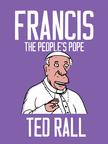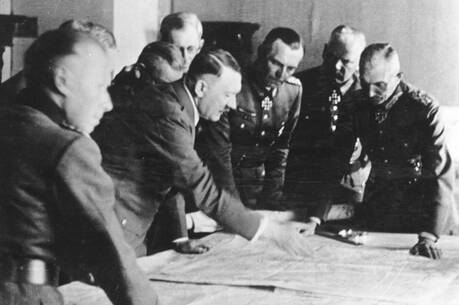Pope Francis gets a cartoon treatment
I am surprised at the way Ted Rall, a two-time winner of the Robert F. Kennedy Journalism Award, seems to cater to his audience when he pens a book. Snowden (2015) was his first biography in graphic novel form, and it portrayed its subject heroically to elicit easy endorsements from Noam Chomsky and Ralph Nader. Next came Bernie (2016), which began with Bernie Sanders on the campaign trail, then depicted how the Democratic Party had failed to demonstrate the need for him.
Now Rall has written Francis, and on the surface it is also a liberal easy-pleaser, describing itself in a bold headline on the back: “Finally, A Reason to Believe.” It begins with the papal election of March 2013. Then, a warning: “You have only to look at President Obama to see what happens when soaring oratory fails to materialize in real terms that change people’s lives.” Catholic history and theology are challenged in Part 2, which Rall calls “Catechism.” This is where he explains but usually disputes Catholic teachings such as the primacy of Rome, the continuity of bishops since Peter and the theology of the sacrament of reconciliation. There are references to Holy Roman emperors, “The Sopranos,” and of course, Galileo.
Ted Rall's graphic novel Francis makes it seem that Rall sees all history, characters and events through a particular lens and is unable to focus attention on contexts.
Rall’s snapshot approach in word and image is slipshod, moving from modern popes to the pedophilia scandal to the Protestant Reformation. Then comes Vatican II; then “John Paul II—The Anti-Francis,” which is egregiously foolish. It seems that Rall sees all history, characters and events through a particular lens and is unable to focus attention on contexts. Rall champions heroes of the people at the expense of everyone else. He titles his section on the 2013 conclave “Redemption?” I am a fan of Pope Francis but found myself almost rooting against him.
Rall blends elements bizarrely (actor Alec Baldwin opining on guilt, then the Rev. Richard McBrien on the failings of John Paul II), until you realize his audience is predominantly those who receive their news from “The Daily Show” and do all their reading on a phone. I am troubled this book does not offer a more balanced treatment. I also don’t like how the cartoonist has made our pope look like Homer Simpson.
This article also appeared in print, under the headline “Cartoon Treatment,” in the May 14, 2018, issue.










